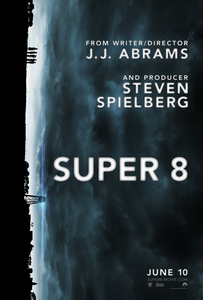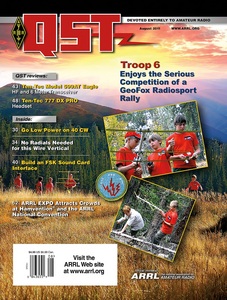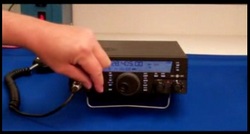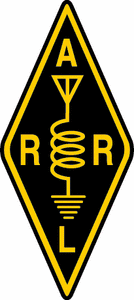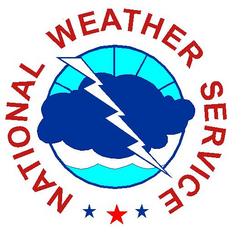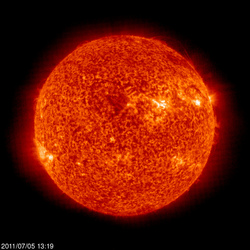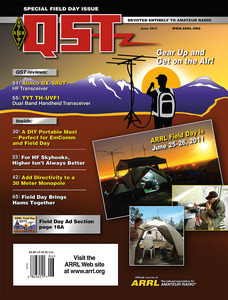 July 7, 2011 John E. Ross, KD8IDJ, Editor
| |||||||||||
+ Available on ARRL Audio News + 2011 Second Meeting of the ARRL Board of Directors Set for July 15-16, Agenda Announced
ARRL policy is made by its Board of Directors. The 15 voting members of the Board are the Directors who are elected by the ARRL members in their respective divisions. The Board meets in January and July, usually in the Hartford area. ARRL members also elect Vice Directors who may attend the meetings. ARRL Directors and Vice Directors are volunteers who work hard to represent the ARRL in their divisions, to represent the members who elect them on policy issues and to conduct the committee work that is so important to good decision-making. This month's Board Meeting activities will begin on Thursday, July 14 with meetings of two standing committees, the Administration & Finance (A&F) Committee and the Programs & Services Committee. Each is made up of five Directors and a Vice Director, with the treasurer serving as an additional member of the A&F Committee. Read more here. FCC News: FCC Issues Citation to Canadian Company for Marketing Unauthorized Devices in US
On July 6, the FCC issued a Citation to New Generation Hobbies of Woodbridge, Ontario, Canada, for marketing unauthorized radio frequency devices in the United States that operate on restricted frequencies. This is in violation of Section 302(b) of the Communications Act and Sections 2.803 and 15.205(a) of the FCC's rules. In the Citation, the FCC advised New Generation Hobbies to "take immediate steps to come into compliance and to avoid any recurrence of this misconduct. As explained [in the Citation] and as provided in the Communications Act, future violations of the Rules in this regard may subject [the] company to substantial monetary penalties, seizure of equipment and criminal sanctions." The FCC acted in response to a complaint alleging that New Generation was marketing certain video transmitters that operate on restricted frequencies in the 2.4 GHz band. In September 2009, the FCC sent a Letter of Inquiry to New Generation. At that time, the FCC Spectrum Enforcement Division observed that New Generation was marketing two 2.4 GHz transmitters on its website: the LawMate 500 mW 2.4 GHz transmitter and the LawMate 1 W 2.4 GHz transmitter. The Amateur Radio Service is allocated portions of the 2.4 GHz band on a primary basis. Read more here. + Ham Radio in Hollywood: Another Hollywood Blockbuster Features Amateur Radio
The summer of 2011 is replete with big movies, ranging from action-adventure flicks to comedies to coming-of-age dramas. And already this summer, Amateur Radio has played a part in not one, but two movies. In Mr Popper's Penguins, ham radio was featured, albeit incorrectly, on the big screen. And now Super 8 -- a film set just outside Dayton, Ohio in 1979 -- uses Amateur Radio in a crucial scene. Super 8 revolves around a group of six middle-schoolers who witnesses a mysterious train crash in the fictional town of Lillian. Soon after the crash, the Air Force arrives and strange things start happening in the small town. The kids, a group of young film makers (hence the title of the movie) begin to investigate the creepy phenomena. Read more here. ARRL Hosts Webinar on Amateur Radio Response to Hurricanes
The ARRL will host a webinar from 8-9:30 PM (EDT) on July 7 to present information about the 2011 hurricane season and the Amateur Radio response. This webinar was organized by ARRL Directors N3LLR, K5MC, W4OZK and K5RAV. The program will offer presentations from representatives from the National Hurricane Center and WX4NHC, the VoIP Hurricane Net, the Hurricane Watch Net and the ARRL. Webinar registration is open to all, but will be of particular interest to those amateurs in hurricane-prone areas. If you are interested in emergency communications and hurricane preparedness and response, you are invited to attend this online presentation. Read more here. + Check Out the August Issue of QST The August issue of QST is jam-packed with all sorts of things that today's Amateur Radio operator needs. From product reviews to experiments to contesting, this issue of QST has something for just about everyone.
When you support your vertical antenna from the top, you open up a lot of possibilities. That's what Bob Glorioso, W1IS, found when he decided to support his monopole antenna from the top and do away with ground radials. Find out how he did it in his article "A Suspended Quarter Wave 40 Meter Wire Vertical Monopole." William E. Johnson, W0MS, takes a new twist on a classic QRP transmitter in his article "A Modified MouseFET Low Power Transmitter." You, too, can build this updated version of a classic HF CW low power transmitter. Boy Scouting and adventure go hand-in-hand, so it's no wonder that Boy Scout Troop 6 of Monument, Colorado had a blast GeoFoxing in the Rocky Mountains. GeoFoxing combines Amateur Radio Direction Finding -- also called foxhunting -- with geocaching. Assistant Scoutmaster Stu Turner, W0STU, found a terrific way to involve youth in Amateur Radio. Find out how you can do the same in his article "GeoFox Radiosport Rally." Join QST Editor Steve Ford, WB8IMY, as he takes readers along to the 2011 Dayton Hamvention® and the 2011 ARRL National Convention in Plano, Texas. Ford also checks out some of the newest Amateur Radio products that debuted at Hamvention.
QST Technical Editor Joel Hallas, W1ZR, takes a look at the Ten-Tec Model 599AT Eagle HF and 6 meter transceiver in this month's Product Review. He says that this rig "brings together a very good receiver in a compact footprint HF and 6 meter transceiver with minimal menus and controls." Hallas also checks out the Ten-Tec 777 DX PRO headset. He says this headset is "the perfect choice for an operator looking for a comfortable high-quality boom mic headset that can provide fine sounding audio without the need for external equalization." Nate Moreschi, N4YDU, delivers the results of the 2011 ARRL International DX CW Contest. Calling it "an intense competition," Moreschi said that there were several records broken in the contest, as well as many tight races. For instance, in the W/VE Multioperator/Multi Transmitter category, the first place team won by only 28 QSOs and 8 multipliers. "Over a 48 hour period, that's just more than half a contact per hour and less than two tenths of a multiplier per hour - pretty close," Moreschi explained. Of course, there are the usual columns you know and expect in the August QST: Happenings, Hints & Kinks, The Doctor Is IN, How's DX, Vintage Radio and more. Look for your August issue in your mailbox. QST is the official journal of ARRL, the national association for Amateur Radio. QST is just one of the many benefits of ARRL membership. To join or renew your ARRL membership, please see the ARRL web page. ARRL In Action: What Have We Been Up to Lately?
This feature is a concise monthly update of some of the things that the ARRL is doing on behalf of its members. This installment -- which covers the month of June -- looks at ARRL Field Day, reviews the ARRL's formal working agreements with served agencies, getting ready for WRC-12, preparing online courses, hosting workshops for utility company employees, seeking input from members regarding VHF/UHF contest participations, reports from the Official Observer Desk and more. Read more here. + Space Weather Prediction Center to Continue Broadcasts on WWV and WWVH
In April 2011, the Space Weather Prediction Center (SWPC) informed the public that as of September 6, 2011, it would no longer broadcast its geophysical alert message on WWV and WWVH. The ARRL has now learned that the SWPC will keep broadcasting these messages that inform listeners of the solar flux, the mid-latitude A and K indices and space weather storms, both current and predicted. Due to listener feedback, the SWPC is considering updating the broadcast; in addition to providing the current daily solar flux at 2800 MHz, the SWPC is considering adding more frequent observations at 2695 MHz. According to the SWPC website. other improvements to the message content will also be evaluated. Solar Update
Tad "The Sun is shining down" Cook, K7RA, reports: The average daily sunspot numbers for the past week dropped less than a point -- from 42 to 41.6 -- compared to the previous week, while the average daily solar flux was down more than 5 points to 86.2. The predicted solar flux for the near term is lower than of late, with values for July 7-13 at 84, 82, 84, 86, 88, 90, 92, and then 90 on July 14-17, then 88 on July 18-21. The predicted planetary A index for July 7-12 is 8, 10, 5, 5, 7 and 7, followed by 6 on July 13-18. This is followed by a rise in geomagnetic activity on July 19-24, with planetary A index at 7, 8, 12, 15, 10 and 7. The latest smoothed sunspot number prediction on page 13 shows the numbers for December 2010 through December 2011 slightly lower. Last month's prediction showed smoothed sunspot numbers for that period at 30, 34, 38, 41, 45, 49, 54, 59, 63, 66, 68, 71 and 74. The latest has the values for those same months changed to 29, 32, 36, 39, 43, 47, 52, 57, 61, 64, 66, 69 and 72. The reason that in July we see last December's number change is because the smoothed sunspot number represents an average of data over one year. The data for approximately six months after December 2010 wasn't completely known until the end of June, and each successive month after that contains one more month of predicted data, instead of data that is actually measured. Look for more information on the ARRL website on Friday, July 8. For more information concerning radio propagation, visit the ARRL Technical Information Service Propagation page. This week's "Tad Cookism" is brought to you by Bowling for Soup's Greatest Day. + ARRL Recognizes: Kazimierz "Kai" Siwiak, KE4PT, Wins June QST Cover Plaque Award
The winner of the QST Cover Plaque Award for June is Kazimierz "Kai" Siwiak, KE4PT, for his article "Is There an Optimum Height for an HF Antenna?" Congratulations Kai! The QST Cover Plaque award -- given to the author or authors of the best article in each issue -- is determined by a vote of ARRL members on the QST Cover Plaque Poll Web page. Cast a ballot for your favorite article in the July issue today. This Week on the Radio This week:
Next week:
All dates, unless otherwise stated, are UTC. See the ARRL Contest Branch page, the ARRL Contest Update and the WA7BNM Contest Calendar for more information. Looking for a Special Event station? Be sure to check out the ARRL Special Event Stations Web page. Upcoming ARRL Section, State and Division Conventions and Events
To find a convention or hamfest near you, click here. ARRL -- Your One-Stop Resource for Amateur Radio News and Information Join or Renew Today! ARRL membership includes QST, Amateur Radio's most popular and informative journal, delivered to your mailbox each month. Subscribe to NCJ -- the National Contest Journal. Published bi-monthly, features articles by top contesters, letters, hints, statistics, scores, NA Sprint and QSO Parties. Subscribe to QEX -- A Forum for Communications Experimenters. Published bi-monthly, features technical articles, construction projects, columns and other items of interest to radio amateurs and communications professionals. Free of charge to ARRL members: Subscribe to the ARES E-Letter (monthly public service and emergency communications news), the ARRL Contest Update (bi-weekly contest newsletter), Division and Section news alerts -- and much more! Find us on Facebook! ARRL offers a wide array of products to enhance your enjoyment of Amateur Radio Donate to the fund of your choice -- support programs not funded by member dues! Click here to advertise in this newsletter. | |||||||||||


